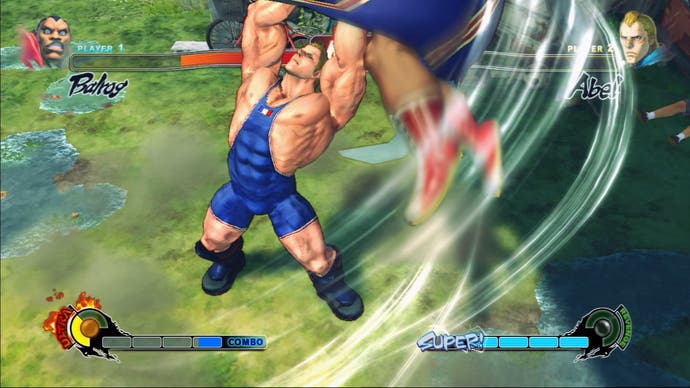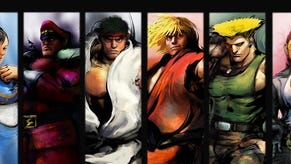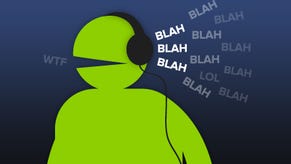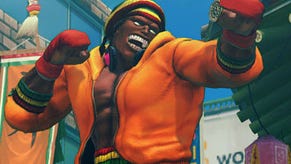Games of 2009: Street Fighter IV
Champion Edition.
But to claim Street Fighter IV's appeal is primarily one of convenience is to sell the game desperately short. It is a masterful remaining of one of gaming's great formative genres, popping the furious spectacle of sprite-based fighting games into 3D in such an effortless and easy way that it makes you wonder why no-one else has managed it in so many years of trying. And while Capcom may have overstated the game's accessibility to newcomers, there's no denying that, by simplifying move lists, lengthening the windows of opportunity for combos and making inputs far more forgiving in their timing, the barrier to entry is lower than just about anywhere elsewhere in the genre.
This simplification of the game's vocabulary is significant, because it allows a broader range of players to learn the language. While it doesn't take long to commit quarter-circle motions and charges to muscle memory, mastering when to use your limited palette of verbs takes months of practice, while turning that vocabulary to poetry takes years. In the game's training mode, where you are free to string together acrobatics against an unflinching dummy, you're composing, forming sentences in your spare room. But play against another human and you enter a rap battle, each player drawing moves and counterattacks from their stockpile of punch lines, tussling with one another for lyrical dominance based on timing and reactions.
What makes the game so utterly rewarding is in the tangibility of improvement. Spend a month playing for an hour a day and the results of your practice become plain to see. Learning which attacks are safe at which distances becomes second nature, while the barriers between eye and hand melt away as you learn to preempt enemy attacks with appropriate clocks and counters without thought.

Many videogames are simply there to act as quicksand distractions, rewarding player investment with a litany of virtual, meaningless trinkets: a new ability for your character here, a badge for your conquests there. Even Modern Warfare 2, an FPS with an expansive, celebrated competitive online component, relies heavily on MMO-style unlocks to keep players investing. These canny rewards may give the illusion of progression, but they muddy the purity of the competitive experience, as some players find themselves more powerful than others, those who have spent the most time with the game favoured over newcomers. Street Fighter IV, by contrast, rewards player investment by levelling its player up, not its character. Play as Ryu and everyone will have the same set of abilities as everyone else: nothing sways the fight one way or the other save for player ability.
Sit down with me to a game of Street Fighter IV and I'll be able to tell a great deal about you, tells that go beyond mere proficiency into the realm of personality and disposition. From your character choice to your first move when we drop into the arena, I'm already working you out, pushing your buttons to get a rise or a fall. Play any game long enough and the topsoil elements, the characters, visuals, and particle effects fade away. The characters on screen become pure ciphers for their player's intent, marionette flesh to the mind games that happen the other side of the screen.
Videogames are so often celebrated for letting us play out our fantasies on-screen, making approximations of impossible or prohibitively expensive experiences available to anyone. There is no fantasy in Street Fighter IV (unless, perhaps you long to role-play throwing fireballs from your palm). There's just technique, and mastery and a rabbit hole that leads from here to forever.
Check out the Editor's blog to find out more about our Games of 2009.








